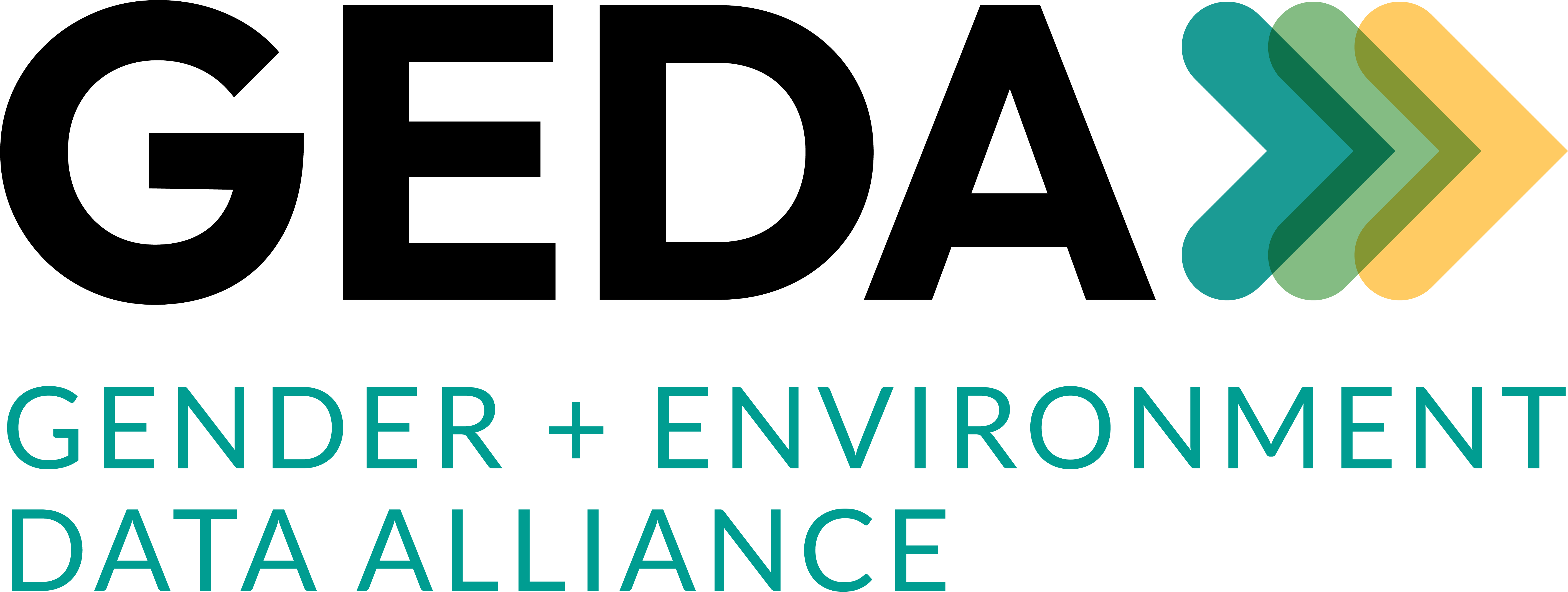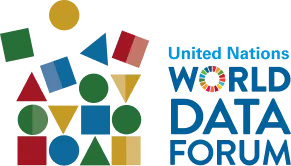
Enabling gender-environment data collection, analysis and application through small grants
Gender and Environment Data Alliance (GEDA)
Multistakeholder Alliance
WEDO (Women's Environment and Development Organization) and IUCN (International Union for Conservation of Nature) on behalf of GEDA's Steering Committee
Global
GEDA is an alliance of diverse organizations working at the nexus of gender, environment and data. GEDA’s Small Grants program will elevate the work of excluded actors, promoting and amplifying intersectional methodologies of data and evidence collection. This data will support GEDA’s efforts to advance systemic, gender transformative shifts in policy, programming, financing, and planning. Grants will focus on data production and/or use:
Data production: Projects that generate, collect, and/or compile data at the nexus of gender and environment, with an emphasis on feminist, grassroots, and community-based data sources and methodologies, including feminist participatory action research, with an emphasis on locally-led and participatory approaches.
Data use: Projects that strengthen capacity, raise awareness, and/or illustrate best practices to catalyze greater uptake and use of quality data and knowledge to promote gender-transformative environment and climate policy action, compiling and/or disseminating existing data through feminist approaches, etc.
Gender data gaps are barriers to effective policymaking and implementation—in all sectors, but especially those related to the environment and the climate crisis. Despite a robust global framework for action, stemming from the Beijing Platform for Action through the SDGs and 80 gender-related decisions in the UNFCCC, pervasive gender data gaps persist, impeding progress toward meeting interlinked goals. Increasing the collection, analysis, communication, use of, and learning from cross-sector data and information at the intersection of gender and environment is critical to constructing and implementing gender-just climate plans and policies.
While some sector-specific data exists and is further emerging and increasing, there is insufficient capacity or dedicated effort to curate or communicate this critical information. This limits the knowledge, capacity, and uptake from policymakers, programmers, funders, practitioners, and activists to apply this knowledge to achieve global climate and environment agendas and safeguard diverse peoples’ lives and livelihoods.
GEDA’s commitment to the World Data Forum is the implementation and scale up of its annual program of small grants, to directly enable gender-environment data collection, analysis and application. At least one round per year of five grants of USD $10,000 to $15,000 each will support organizations undertaking data production and advocacy at the local level.
GEDA commits to accompanying and amplifying the work of grantees through capacity strengthening, peer-learning opportunities, and elevating their voices in in-person and virtual convenings (within GEDA’s membership and externally). The first cohort of grantees (October 2024 - September 2025) will present their proposals at GEDA’s 2024 all-members meeting in October, and be featured and included in GEDA’s communications advocacy efforts throughout 2025.
A second round is planned for mid-2025. Specific efforts will be made to outreach to GEDA’s grassroots and local organization members and their partners who cannot otherwise easily access funds, and for whom a small grant of up to USD $15,000 can make a significant difference in terms of their ability to implement a dynamic and creative data project designed to reflect their context and priorities, while also contributing to the overall gender and environment data landscape.
Subsequent rounds will build on and contribute to GEDA’s thematic, regional, and organizational diversity. We intend to increase the small grants in either number and/or frequency as GEDA continues to fundraise.
GEDA is currently reviewing its monitoring and evaluation to embed the Small Grants impact monitoring. Some proposed targets and indicators may include:
- Number of grants or amount of money allocated to grassroots organizations, by theme of grant, region, type of organization
- Regional diversity, prioritizing resource-constrained organizations and/or underrepresented geographies
- Thematic diversity within climate/environment
- Completion of activities outlined by each grantee in their application
- Number of people hearing about grantees work in virtual and in-person events, disaggregated by gender and type of event
- Evidence of grantee organization learning or expansion of programming beyond/after the timeline of the grant
- Evidence of impact of each small grant in institutional, programming or policy spaces.
